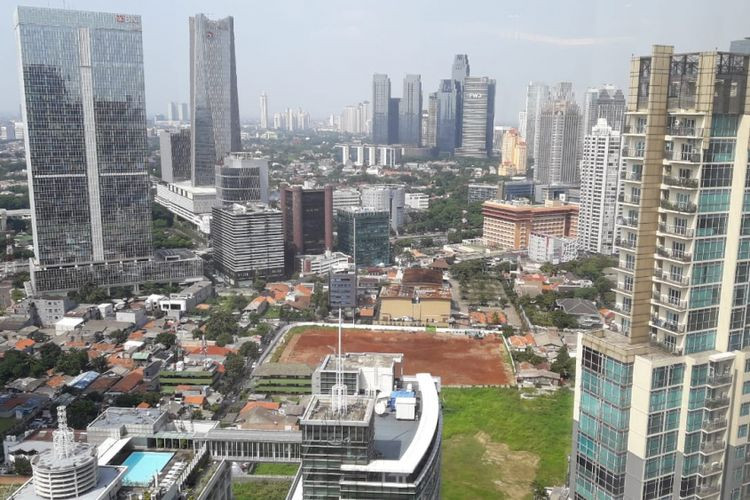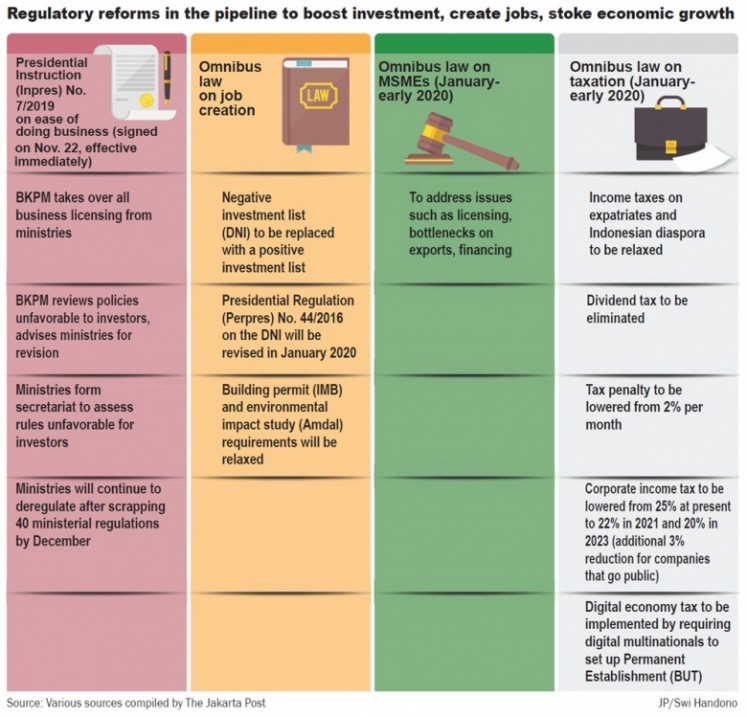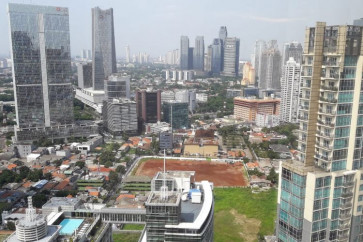Popular Reads
Top Results
Can't find what you're looking for?
View all search resultsPopular Reads
Top Results
Can't find what you're looking for?
View all search resultsBusinesses cautiously optimistic over Indonesia's economic reforms
Change text size
Gift Premium Articles
to Anyone
B
usiness players, economists and observers welcomed the government’s sweeping regulatory reforms to liberalize the economy and stoke growth. However, many have said they would maintain caution as to whether the programs can be consistently delivered.
“Resolution of investor deterrents and the desired inflows' impact on these efforts will depend upon consistent implementation,” said Chris Wren, executive director of the British Chamber of Commerce (Britcham) in Indonesia.
President Joko “Jokowi” Widodo’s administration is fleshing out rules for Indonesia’s sweeping regulatory reforms to lure investments, stoke sluggish economic growth and create jobs amid global economic uncertainties.
The new regulations would open up sectors previously closed to foreign investors by revising the negative investment list, streamlining all business licenses under the Investment Coordinating Board (BKPM) and relaxing taxes for corporate income, expatriates and dividends, among other things.
More efforts in deregulation include revoking at least 40 ministerial regulations and relaxing building permits (IMB) and Environmental Impact Analysis (Amdal) requirements.
Indonesian Employers Association (Apindo) chairman Hariyadi Sukamdani said getting every single stakeholder involved in business licensing on board with the BKPM’s new authority would be a big challenge.



















